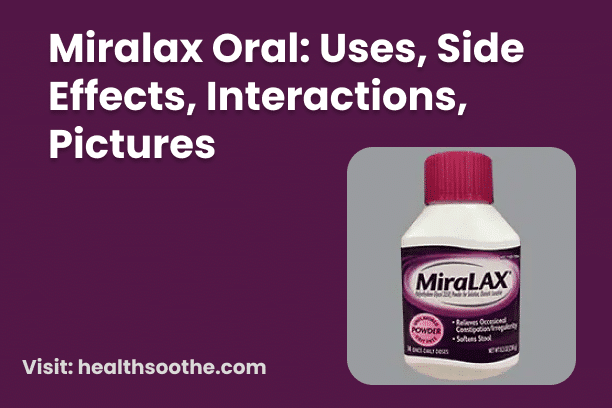Meclizine is an antihistamine employed for the prevention and treatment of queasiness, vomiting, and vertigo triggered by motion sickness. It might also be utilized to alleviate dizziness and balance disturbances originating from inner ear issues.
How to use Meclizine HCL
Adhere to all instructions provided on the product packaging. If your healthcare provider has prescribed this medicine, use it according to their guidance. Should you have any queries, consult your doctor or pharmacist.
Administer this medication orally, with or without food. In the case of chewable tablets, ensure thorough chewing before swallowing.
Dosage is determined by your medical condition and response to treatment. Avoid raising your dose or exceeding the prescribed frequency.
For motion sickness prevention, take the initial dose an hour before engaging in activities such as travel.
Notify your doctor if your condition fails to improve or deteriorates.
Side Effects
You might experience drowsiness, dry mouth, and fatigue. In case these effects persist or worsen, promptly inform your doctor or pharmacist.
To alleviate dry mouth, you can suck on sugarless hard candy or ice chips, chew sugarless gum, hydrate with water, or consider using a saliva substitute.
If your healthcare provider has recommended the use of this medication, it's important to acknowledge that they've assessed the balance between the benefits and potential side effects. Numerous individuals who use this medication do not encounter severe side effects.
Notify your doctor immediately if you experience significant side effects, including alterations in your mental state (such as restlessness, and confusion), rapid or irregular heartbeat, trembling (tremor), or difficulties with urination.
In case of serious side effects, such as seizures, seek medical assistance without delay.
Although severe allergic reactions to this drug are rare, it's imperative to seek medical attention immediately if you observe indications of a serious allergic reaction, such as rash, itching/swelling (particularly of the face/tongue/throat), severe dizziness, or breathing difficulties.
Precautions
Before you start taking meclizine, it's important to inform your doctor or pharmacist if you are allergic to it or have any other allergies. This product might contain inactive components that could trigger allergic reactions or other complications. For more detailed information, consult your pharmacist.
Prior to using this medication, disclose your medical history to your doctor or pharmacist, particularly if you have conditions such as breathing issues (such as asthma, emphysema), high intraocular pressure (glaucoma), heart problems, hypertension, seizures, gastrointestinal issues (like ulcers or blockages), hyperthyroidism, difficulties with urination (such as due to an enlarged prostate), liver problems, or kidney problems.
This medication could induce drowsiness. Consuming alcohol or using marijuana (cannabis) can amplify drowsiness. Refrain from operating machinery, driving, or undertaking activities requiring alertness until you can do so safely. Steer clear of alcoholic beverages. If you are using marijuana (cannabis), discuss this with your doctor.
Before undergoing surgery, ensure your doctor or dentist is aware of all the products you are using, including prescription drugs, nonprescription drugs, and herbal supplements.
Children may exhibit heightened sensitivity to the side effects of this medication. Instead of causing drowsiness, this drug can lead to restlessness in young children.
Elderly individuals may experience an increased susceptibility to the side effects of this medication, particularly drowsiness, confusion, or difficulty urinating. Drowsiness and confusion can elevate the risk of falls.
During pregnancy, it is advisable to use this medication only when it is clearly essential. Discuss the potential risks and benefits with your doctor.
The passage of this drug into breast milk is uncertain. Consult your doctor before breastfeeding.
Interactions
Interactions between drugs can influence the functioning of your medications or heighten the risk of severe side effects. This document does not encompass all conceivable drug interactions. Compile a comprehensive list of all the products you utilize, encompassing prescription and non-prescription drugs as well as herbal preparations, and share it with both your doctor and pharmacist. Do not initiate, terminate, or modify the dosage of any medicines without obtaining your doctor's consent.
Certain products that might interact with this medication are antihistamines applied to the skin, like diphenhydramine cream, ointment, or spray.
Notify your doctor or pharmacist if you are using other products that provoke drowsiness, such as opioid pain relievers, cough suppressants (such as codeine, hydrocodone), alcohol, marijuana (cannabis), medications for sleep or anxiety (like alprazolam, lorazepam, zolpidem), muscle relaxants (such as carisoprodol, cyclobenzaprine), or additional antihistamines (such as cetirizine, diphenhydramine).
Carefully review the labels of all your medications, including allergy or cough-and-cold products, as they might encompass components that induce drowsiness. Consult your pharmacist to ensure the secure usage of these products.
This medication could potentially influence specific laboratory tests (e.g., allergy skin tests), potentially causing inaccurate test results. Ensure that laboratory personnel and all your medical professionals are informed of your usage of this drug.
Overdose
In case of an overdose with severe symptoms like loss of consciousness or breathing difficulties, dial 911 immediately. If the situation is not critical, promptly contact a poison control centre. For US residents, the local poison control centre can be reached at 1-800-222-1222, while Canadian residents can contact a provincial poison control centre. Symptoms of an overdose may encompass intense drowsiness, seizures, and dilated pupils. In children, mental or mood alterations (such as restlessness, irritability, and hallucinations) might manifest prior to drowsiness.
Additional Information: Ensure you uphold all your medical appointments and scheduled laboratory visits.
Missed Dose
If you miss a dose, take it as soon as you recollect. If it's close to your next scheduled dose, omit the missed dose and adhere to your regular dosing timetable. Refrain from doubling the dose to make up for the missed one.
Read Also: PINAVERIUM - ORAL Side Effects, Medical Uses, and Drug
Storage
Keep the medication stored at room temperature, and safeguarded from light and moisture. Avoid storing it in the bathroom. Ensure all medications are out of reach of children and pets.
Do not flush medications down the toilet or pour them into drains unless instructed to do so. When the product reaches its expiration date or is no longer needed, dispose of it properly. Consult your pharmacist or the local waste disposal agency for guidance.
Conclusion
In conclusion, it is essential to follow the prescribed guidelines and recommendations when using this medication. If an overdose is suspected, swift action should be taken by either contacting emergency services or a poison control centre. Adherence to medical appointments and dosing schedules is crucial, and any missed doses should be managed according to the instructions provided. Proper storage practices must be observed to maintain the medication's efficacy and prevent unauthorized access. By exercising caution and responsible usage, one can maximize the benefits of the medication while minimizing the risks associated with its use.



